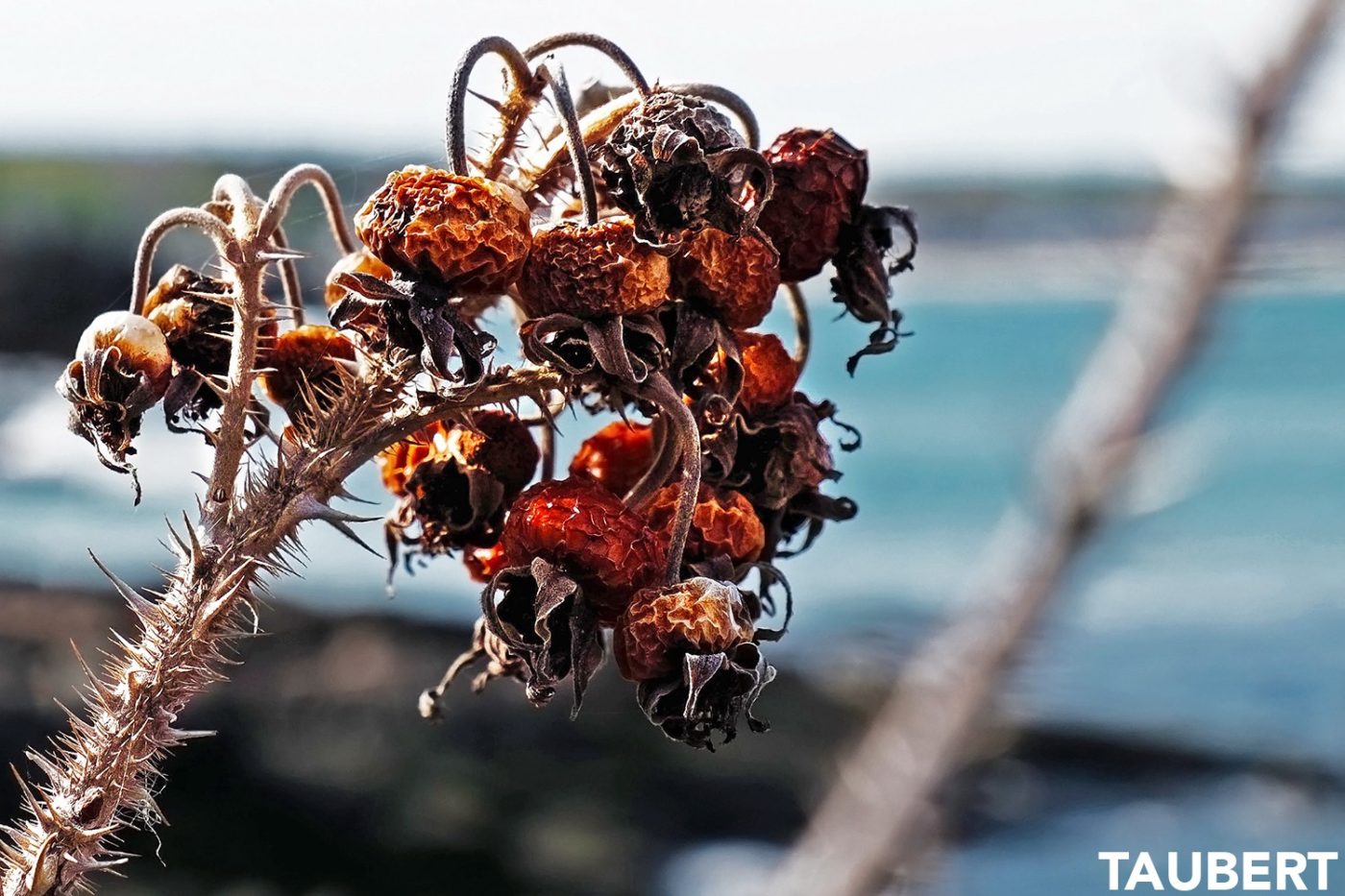Last summer’s fruit still clings to the end of thorny rosa rugosa stems along the Marginal Way cliff walk in Ogunquit, Maine — even as spring sunlight coaxes new growth elsewhere along the thickets.
The rose hips are withered, having endured the passing of seasons, the chilling of harvest evenings, the wind and snow rage of coastal storms, the salt spray from weather and waves battering the craggy coastline, the frost and the sea smoke, the fog and the thawing, always the sunlight, always the night, always repeating.
These remaining rose hips have outlasted the appetites of shorebirds and the icy loneliness of the off-season. Now, they’re blackened with frostbite, tinged with sea salt crystals, and tied with wispy spiderwebs.
Soon they’ll decide to relax their stubborn grip and submit to the charms of impending summer in New England. As new blossoms appear, caution will be thrown to the wind, and they’ll drop willingly, recklessly to the sandy soil below; finally delivering the promise of new life they’ve been patiently protecting from the elements and, almost unnoticed, giving birth to the next generation of seaside beauty.


